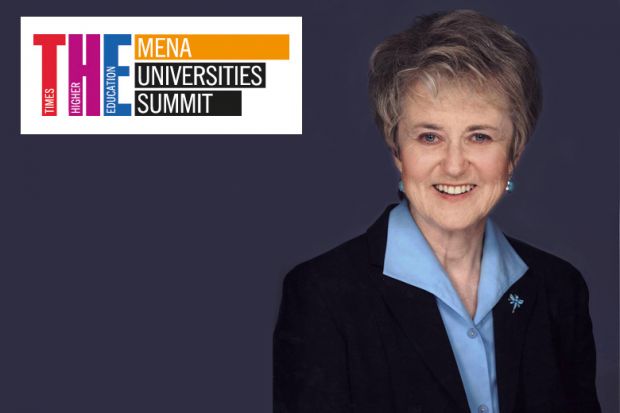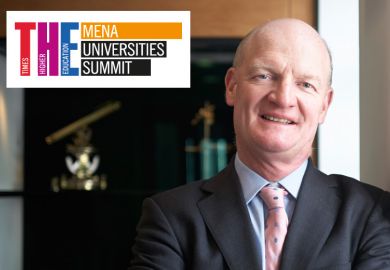The voice of academics must not be lost from university governance as institutions around the world shift towards a corporate model of leadership, a conference heard.
Jill Derby, vice-chair of the board at the American University of Iraq, Sulaimani, told the Times Higher Education MENA Universities Summit that institutions were “moving away” from the traditional collegial style of governance because they were playing an increasingly central role in the development of national knowledge economies.
This had put greater emphasis on the need for governing bodies to provide “strategic leadership” and had reduced opportunities for staff to elect university leaders or to participate directly in decision-making, Dr Derby said.
However, Dr Derby said university boards also had an important role to play in monitoring student outcomes and that, in the Middle East in particular, focus was shifting away from widening participation and towards improving standards.
This meant that the perspective of academics was “vital to governing boards”.
“In terms of what’s going on in the classroom, faculty know about that… so… as we move more in the direction of a corporate model, it’s important we see the important role they play,” Dr Derby said. “Governing boards need to be informed of the perspective that faculty have, by whatever mechanism.”
Dr Derby, former chair of the board of regents which governs the Nevada System of Higher Education, told the event at United Arab Emirates University that examples of such a mechanism included having an academic council which made representations to the board, or creating ex-officio non-voting seats for academics on the board itself.
Robert Whelan, the former president of the University of Wollongong in Dubai, said collegiality was difficult to maintain when universities were expected to be “much more agile, much more responsive, and much more able to seize an opportunity”.
“In many countries governments are expecting them to do that quickly and there’s a challenge in doing that if the whole governance process right through the institution is very participatory and is very collegial because that takes time and there’s the potential for things for to keep going back and forward,” Dr Whelan said. “I think there’s a challenge for institutions to [remain] agile while at the same time ensuring that they achieve what a collegial style of management is meant to achieve, which is good participation and broad input; so the institution can harness the best minds and best ideas in the institution, but do it quickly.”
However, Eesa Mohammed Bastaki, president of the University of Dubai, said that he was in favour of governing boards sometimes being a “one-man show”, “especially those one-man shows… that know exactly what is happening and know exactly where the institution should go”.
POSTSCRIPT:
Print headline: Words of wisdom: academic voice still 'vital' in era of centralised governance
Register to continue
Why register?
- Registration is free and only takes a moment
- Once registered, you can read 3 articles a month
- Sign up for our newsletter
Subscribe
Or subscribe for unlimited access to:
- Unlimited access to news, views, insights & reviews
- Digital editions
- Digital access to THE’s university and college rankings analysis
Already registered or a current subscriber?










